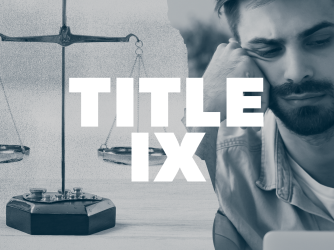Table of Contents
University of California Schools Flout Student Speech Rights
While some University of California schools are facing scrutiny due to their handling of students' exercises of free speech and civil disobedience, others in the system have unfinished business protecting students' free speech rights in their policies. All eight of the UC universities reviewed by FIRE have "red light" or "yellow light" ratings for restricting campus speech, and four of them have flouted UC President Mark Yudof's 2009 directive to protect free speech in their policies regarding discriminatory harassment.
UC Irvine, UC Riverside, UC San Diego, and UC Santa Cruz all have been rated by FIRE with a red light for maintaining policies that clearly and substantially restrict students' speech. UC Berkeley, UC Davis, UCLA, and UC Santa Barbara all have been rated with a yellow light for maintaining unconstitutional policies that too easily encourage administrative abuse and arbitrary application.
For example, UC Riverside's policy with the misleading name "Freedom of Speech in Promoting Events and Organizations" states that "[P]ublicity should not contain ... violent images or language against individuals or groups" and goes even further to state, "When considering forms of expression to promote your organization or event, check to make sure ... [t]he expression does not portray negative or belittling images of others."
This is an unconstitutional threat to free speech. UC Riverside students are not allowed to, say, portray UC Davis Lieutenant John Pike (of pepper spray infamy) or campus police generally in a negative or belittling way, or to portray violent images of police action designed to spur others to protest police overreactions to student activism. Furthermore, UC Riverside requires prior scheduling for any protest activity that "can reasonably be expected to attract a crowd of 25 or more," essentially prohibiting spontaneous demonstrations in response to unfolding events.
And as FIRE's Will Creeley wrote last week, four UC schools maintain policies that fail to protect free speech by failing to properly define discriminatory harassment in the educational context. Unfortunately, this is a common problem nationwide, but University of California System president Mark Yudof instructed all UC Chancellors to get it right in a systemwide memo back in 2009.
Discriminatory harassment, properly understood and as defined by the Supreme Court, refers to conduct that is (1) unwelcome; (2) discriminatory (3) on the basis of gender or another protected status, like race; (4) directed at an individual; and (5) "so severe, pervasive, and objectively offensive, and that so undermines and detracts from the victims' educational experience, that the victim-students are effectively denied equal access to an institution's resources and opportunities." We call this the Davis standard because the Supreme Court announced this definition in Davis v. Monroe County Board of Education back in 1999.
But twelve years later and two years after Yudof's memo, as Will writes:
- UC San Diego is still using an old harassment policy.
- UC Santa Barbara is also still using an old harassment policy, one which lists "personal jokes or negative comments about you personally or about you as a female or male" as an example of harassment.
- UC Santa Cruz is still using an old harassment policy, as well, and this one prohibits as harassment "exclusion from informal meetings/social events." What makes this even more confusing for students is the fact that the Code of Student Conduct lists the new policy, but the Title IX / Sexual Harassment Office doesn't.
- UC San Francisco's policy is also outdated. Additionally, the school is still distributing brochures ("Sexual Harassment: A Guide for Faculty, Staff, Students") that fail to note the new policy.
- Finally, UC Berkeley still maintains its outdated (May 2008) policy online, failing to note that it has been superseded by the new systemwide policy. (UC Berkeley has made the proper change elsewhere.)
The UC System institutions have a long way to go to protect students' speech rights. Now that a greater part of the world is watching the University of California than perhaps ever before, this is a perfect time to announce policy revisions that protect the rights of students under both the California Constitution and the First Amendment to the U.S. Constitution.
- Harassment
- Due Process
- Speech Codes
- University of California - Riverside
- University of California, Berkeley
- University of California, Davis
- University of California, Irvine
- University of California, Los Angeles
- University of California, Santa Barbara
- University of California, Santa Cruz
- University of California, Merced
Recent Articles
FIRE’s award-winning Newsdesk covers the free speech news you need to stay informed.

FIRE statement on campus violence and arrests

BREAKING: New Title IX regulations undermine campus free speech and due process rights

STATEMENT: Title IX regs mean students less likely to receive justice
